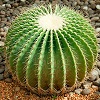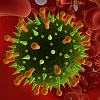IPad Apps

Rocks and Minerals

Structure of earth

Simple Machines

Magnets

Animal Adaptations

Plant Adaptations

Diseases

Solar System
Welcome to FunAppSchool

IPad and IPhone Apps
Educational Games for IPad and IPhone. English Grammar and Science Apps for Elementary and Middle School Kids.
Fertilizer
Fertilizers are substances (either natural or artificial) that are added to the soil of plants and crops to help them grow better.
Natural fertilizers are compost and manure that have been used for centuries by farmers. Manure comes from (farm) animals waste, but in some countries, even human waste is used.
The reason that manure helps plants grow well is it contains a high amount of chemical nitrogen, phosphorous, and potassium, all essential for the plants to grow.
Just the same way that we need vitamins and minerals to make us healthy, plants need fertilizer, and manure is the most natural way they get their vitamins.
Artificial fertilizers are those that have been made by man using powdered or liquid chemicals, and sometimes even gas.
They have a mixture of potassium, nitrogen, and phosphorous, but also contain additional chemicals like calcium, magnesium, and sulphur.
Fertilizers are important in the food industry because it increases the amount of plants that can be grown; it helps to yield better crops, and improves the soil for future crops.
Because of these factors, it is said that after the use of fertilizers crops have increased around the world, and even though many still remain undernourished, more than half the population on Earth is being fed.
Since more farmers and industrial food producers started using fertilizers, the fertilizer industry itself has started thriving.
Many people around the world have steady jobs in this industry, and since it is so important, many of these jobs are safe from the economic problems of the world.
Just like taking too much of a vitamin or mineral can be bad for our health, too much of fertilization, called over-fertilization is bad for the plant.
Over-fertilization affects the plant the same way that it would if the plant is not fertilized enough (under-fertilization).
Farmers can easily spot when a plant has been over-fertilized because it shows burn marks on its leaves. These are called fertilizer burns. Sometimes the plants also die.
With the increase of environmental problems, and more people turning to eating organic food, many farmers and industries try to move away from artificial fertilizer as much as possible.
In addition, organic fertilizers (natural) improve the quality of the soil over a longer period than artificial fertilizers.
Unfortunately, since there can be insects, disease causing organisms and even fungus in natural fertilizers, farmers need to be careful they do not affect the plant.
They are also more expensive to produce than artificial fertilizers and therefore food grown from organic fertilizers too is sometimes expensive.
Inorganic or artificial fertilizers need to be used only when important because they contribute to problems in the environment and oceans more than natural fertilizers do.







